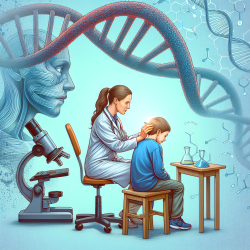In the realm of education and child development, the health and well-being of our students are paramount. As educators and therapists, we have a unique opportunity to influence not only the academic growth of children but also their overall health. A recent commentary by Kristin Shrader-Frechette titled "Taking action on developmental toxicity: Scientists’ duties to protect children" highlights the ethical imperative for professionals to address developmental toxicity (DT) caused by environmental pollutants.
Understanding Developmental Toxicity
Developmental toxicity refers to adverse effects on the developing child due to exposure to environmental chemicals. These exposures can lead to significant health issues later in life, including neurodevelopmental disorders, asthma, and even some cancers. The commentary emphasizes that children are particularly vulnerable during in-utero and early postnatal periods when their bodies are still developing.
The Ethical Responsibility of Educators and Therapists
The commentary argues that professionals, including educators and therapists, have a justice-based duty to help stop DT. This responsibility is heightened for those with greater knowledge and resources. As educators, we must advocate for policies that protect children from harmful exposures and integrate awareness into our teaching practices.
Practical Strategies for Implementation
- Educate Yourself and Others: Stay informed about DT through professional development opportunities such as webinars and conferences. Share this knowledge with colleagues and parents.
- Create a Safe Learning Environment: Work with school administrators to ensure that the school environment is free from harmful chemicals. This includes advocating for non-toxic cleaning supplies and materials.
- Incorporate Environmental Health into Curriculum: Integrate lessons on environmental health into your teaching to raise awareness among students about the impact of pollutants.
- Engage with Policy Makers: Participate in local advocacy efforts to support legislation aimed at reducing environmental toxins that affect children’s health.
The Importance of Continued Research
The commentary calls for ongoing research to better understand DT's impacts and develop effective prevention strategies. Educators can contribute by supporting research initiatives within their schools or districts. Encourage students to engage in projects that explore environmental health issues, fostering a new generation of informed citizens.
The challenges posed by developmental toxicity are significant, but as educators and therapists, we have the power to make a difference. By taking proactive steps within our schools and communities, we can help protect the health of our students now and in the future.
Taking action on developmental toxicity: Scientists’ duties to protect children










